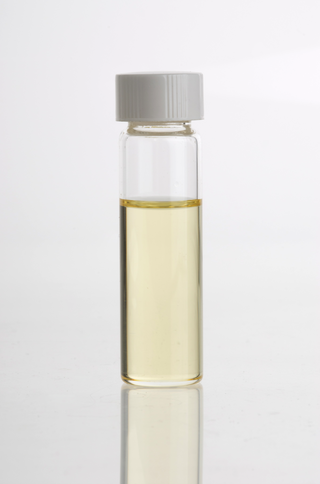
Fiona Juliet Stanley is an Australian epidemiologist noted for her public health work, her research into child and maternal health as well as birth disorders such as cerebral palsy. Stanley is the patron of the Telethon Kids Institute and a distinguished professorial fellow in the School of Paediatrics and Child Health at the University of Western Australia. From 1990 to December 2011 she was the founding director of Telethon Kids.

Herbal medicine is the study of pharmacognosy and the use of medicinal plants, which are a basis of traditional medicine. With worldwide research into pharmacology, some herbal medicines have been translated into modern remedies, such as the anti-malarial group of drugs called artemisinin isolated from Artemisia annua, a herb that was known in Chinese medicine to treat fever. There is limited scientific evidence for the safety and efficacy of many plants used in 21st-century herbalism, which generally does not provide standards for purity or dosage. The scope of herbal medicine sometimes includes fungal and bee products, as well as minerals, shells and certain animal parts.

June Kathleen Lloyd, Baroness Lloyd of Highbury was a British paediatrician and, in retirement, a cross bench member of the House of Lords. June Lloyd was a determined advocate for children's health and was instrumental in the establishment of the Royal College of Paediatrics and Child Health. In 1996, the college gained its royal status. She was also known for discovering that the damage caused to patients by the rare metabolic disease oQ-betalipoproteinaemia, that could be avoided by the use of Vitamin E. She was also known for discovering the role of lipid metabolism in health and disease in childhood, which was original and difficult to investigate at that time.

Phytochemicals are chemical compounds produced by plants, generally to help them resist fungi, bacteria and plant virus infections, and also consumption by insects and other animals. The name comes from Greek φυτόν (phyton) 'plant'. Some phytochemicals have been used as poisons and others as traditional medicine.

Medicinal plants, also called medicinal herbs, have been discovered and used in traditional medicine practices since prehistoric times. Plants synthesize hundreds of chemical compounds for various functions, including defense and protection against insects, fungi, diseases, against parasites and herbivorous mammals.

Sedentary lifestyle is a lifestyle type, in which one is physically inactive and does little or no physical movement and/or exercise. A person living a sedentary lifestyle is often sitting or lying down while engaged in an activity like socializing, watching TV, playing video games, reading or using a mobile phone or computer for much of the day. A sedentary lifestyle contributes to poor health quality, diseases as well as many preventable causes of death.

Oil of clove, also known as clove oil or eugenol, is an essential oil extracted from the clove plant, Syzygium aromaticum. Clove oil is commonly used in aromatherapy and for flavoring food, tea, and toothpaste. In alternative medicine, it may be used as a topical medication to relieve toothache. There is insufficient medical evidence to support its use as an analgesic for treating pain.

Perilipin, also known as lipid droplet-associated protein, perilipin 1, or PLIN, is a protein that, in humans, is encoded by the PLIN gene. The perilipins are a family of proteins that associate with the surface of lipid droplets. Phosphorylation of perilipin is essential for the mobilization of fats in adipose tissue.

A medium-chain triglyceride (MCT) is a triglyceride with two or three fatty acids having an aliphatic tail of 6–12 carbon atoms, i.e. a medium-chain fatty acid (MCFA). Rich food sources for commercial extraction of MCTs include palm kernel oil and coconut oil.

The American Society for Biochemistry and Molecular Biology (ASBMB) is a learned society that was founded on December 26, 1906, at a meeting organized by John Jacob Abel. The roots of the society were in the American Physiological Society, which had been formed some 20 years earlier. ASBMB is the US member of the International Union of Biochemistry and Molecular Biology.

Otto Herbert Wolff, was a German born medical scientist, paediatrician and was the Nuffield Professor of Child Health at Great Ormond Street Hospital. Wolff was notable for being one of the first paediatricians in Britain to set up a clinic for obese children. Later research into plasma lipids with Harold Salt pioneered the techniques of lipoprotein electrophoresis. He later conducted research into the role of lipid disturbance in childhood as a precursor of coronary artery disease and his recognition in 1960 of the rare condition of abetalipoproteinaemia. Wolff was also co-discoverer of the Edwards syndrome in abnormal chromosomes.
Rexford Sefah Ahima is a professor of medicine, Public Health and Nursing; Bloomberg Distinguished Professor of Diabetes at the Johns Hopkins Medical School; and the Director of the Division of Endocrinology, Diabetes and Metabolism, Johns Hopkins University School of Medicine. Ahima's research focuses on central and peripheral actions of adipocyte hormones in energy homeostasis, and glucose and lipid metabolism.

Melissa Anne Wake is a New Zealand paediatrician and scientific director of the Generation Victoria initiative, which states the aim of creating very large, parallel whole-of-state birth and parent cohorts in Victoria, Australia, for Open Science discovery and interventional research. She is group leader of the Murdoch Children's Research Institute's Prevention Innovation Research Group and holds professorial positions with the University of Melbourne and the University of Auckland.

Nicola Jane Spurrier is an Australian paediatrician and public health physician who has been the Chief Public Health Officer of South Australia since August 2019.

Tirzepatide is an antidiabetic medication used for the treatment of type 2 diabetes and for weight loss. Tirzepatide is administered via subcutaneous injections. In the United States, it is sold under the brand name Mounjaro for diabetes treatment, and Zepbound for weight loss and treatment of obstructive sleep apnea.
Julie Bines is a clinician and researcher working in Melbourne, Australia. Alongside being a professor and deputy head of the Department of Paediatrics at the University of Melbourne, she is also a paediatric gastroenterologist at the Royal Children's Hospital Melbourne and is the leader of the Enteric Diseases group at the Murdoch Children's Research Institute. Bines is the joint head of the WHO Collaborative Centre for Child Health and founding member of Women in Global Health Australia.
John Christodoulou is an Australian medical geneticist, genetic pathologist and clinical scientist. He is director of the Genetics Theme and Group Co-Leader of the Brain and Mitochondrial Research Group at Murdoch Children's Research Institute. Additionally, he holds the Chair in Genomic Medicine, Department of Paediatrics, The University of Melbourne.
Catherine Law CBE is a British paediatrician and epidemiologist at the UCL Great Ormond Street Institute of Child Health. She received the James Spence Medal, the highest honour of the Royal College of Paediatrics and Child Health, in 2020.

Mark Anthony Febbraio is a physiologist, academic and researcher. He is a professor and head of the Cellular and Molecular Metabolism Laboratory at the Monash Institute of Pharmaceutical Sciences (MIPS) of Monash University and a Senior Principal Research Fellow of the National Health and Medical Research Council (NHMRC).
Christine Philippa Rodda is an Australian paediatric endocrinologist and academic. She is an Associate Professor of Paediatrics at the Melbourne Medical School – Western Campus, Sunshine Hospital. Rodda is known for her research on metabolic bone disease and vitamin D deficiency in children.














